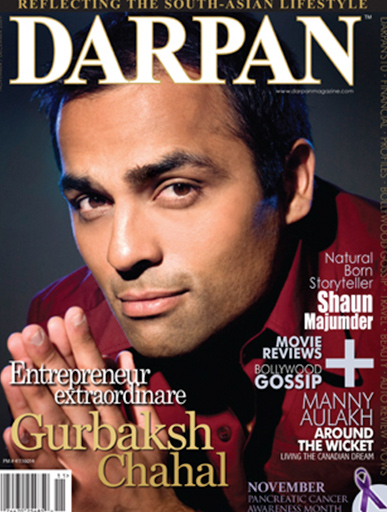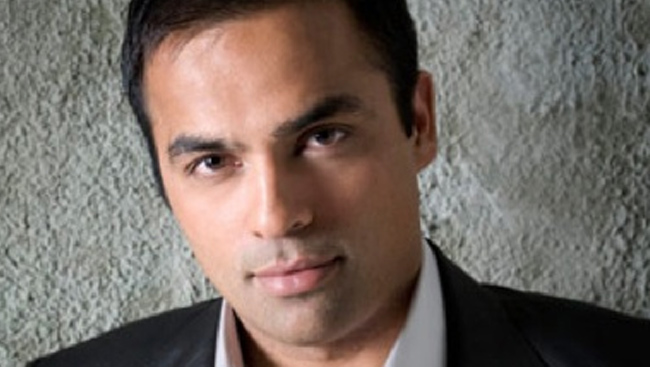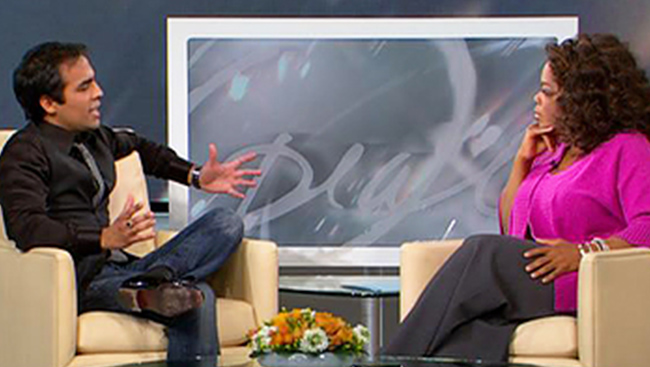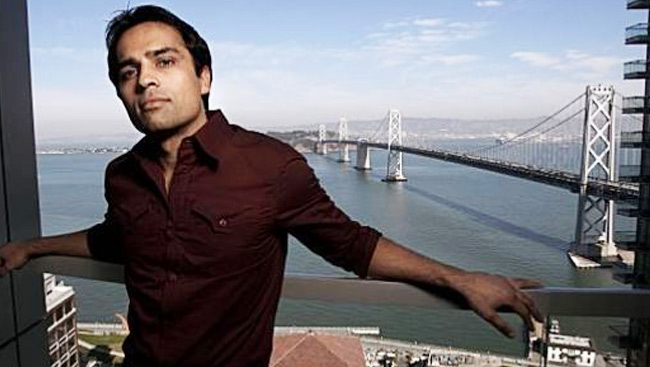There has been much research on how birth order is significant in shaping individual success, but only for children of large families — four or more siblings — and in families where finances and parental time are constrained.

“A child’s position in the family impacts his personality, his behavior, his learning and ultimately his earning power,” states Michael Grose, author of ‘Why First Born Rule the World and Last Borns Want to Change It.’ “Most people have an intuitive knowledge that birth order somehow has an impact on development, but they underestimate how far-reaching and just how significant that impact really is.”
The youngest child tends to be the most creative and can be very charming. They often identify with the underdog, they tend to champion egalitarian causes and are more inclined to be successful in journalism, advertising, sales, and the arts. Gurbaksh Chahal is one such youngest child who has had success in setting up an internet company in his bedroom at 16 and selling two companies for $40m and $300m.
Gurbaksh Singh Chahal born July 17, 1982 is an American entrepreneur, author, TV personality, motivational speaker, and self made multi-millionaire. By the age of 25, he founded two advertising companies worth $340 million, more recently appeared on several TV shows and published an entrepreneurial based book. Gurbaksh was born in the town of Tarn Taran, near Amritsar in Punjab, India to Avtar and Arjinder Chahal. In 1985, his parents received a visa for America through a lottery-based system in India, and the following year, when he was four, settled in San Jose, California. “When I was 3, my parents were gone for an entire year. They left because of instability in India, and stayed with friends in San Jose. I lived with my grandmother and older siblings in Tarn Taran. I came to the United States a year later, flying from New Delhi to San Francisco.” His parents had arrived with only $25 to their name, and they struggled at menial jobs to make a future for their four children.
Recently, DARPAN’s editor had the opportunity to interview Chahal and his journey to ‘living his dream’. Chahal eptimozies that no matter how humble one’s beginnings, there is truly no limit to what an individual can achieve. For the Chahal family, as for many immigrants, education was paramount and his upbringing was exceedingly strict and disciplined.
“My mother had been a nurse in India. Here, she started as a hospital orderly and worked her way up to becoming a registered nurse. My father was a police officer in India. Here, he became a security officer. We lived in a one room, low-income house. My parents were traditional Sikhs and my brother and I wore turbans. We faced a lot of discrimination because of how different we looked. Once when I was 10, I went to the local elementary school to play basketball. While I was playing, two kids were saying derogatory things to me. One said, “Come here.” He pulled a knife on me and told me to take my blue turban off. I untied it, handed it to him and ran for my life. I was more or less in shock.”

In some ways, Chahal was quite rebellious in his youth. Perhaps it was because he was the youngest and was predisposed to doing things he was not suppose or because of his strict upbringing. Whatever the case may be it certainly has transpired into living out a dream that is almost unimaginable to many. “My older brother was a straight A student, I did okay with B’s and some C’s, but my mom always use to say, why can’t you focus more on school like your brother. When I was 15, I was able to take college courses while still in high school on the campus of what is now Evergreen Valley College. My parents wanted me to be either a doctor or an engineer, but I didn’t really like science. I hated blood and hated dissecting the frog.”
Chahal saw the opportunities of the internet early on, when he started buying second hand printers for $50 from a market stall and selling them on eBay for $200. His rebellious nature came out in full force when he was buying the HP.net and Dell.net domain names in 1997 and sending a letter to the companies offering to sell the names back to them for $10,000–and then receiving threatening cease and desist letters and giving the domains back for free. After losing family money through day trading, Chahal and his family felt the pressure of having little money. “My dad and I were researching stocks and started to day trade, things kind of went sour and we almost lost our house. We were all working two jobs and really feeling the pressure. This is when I decided to start my idea. I had $99 and thought I would give it a try. I had nothing to lose.”
Chahal’s success originated from performance-based advertising network called Value Click. Chahal started his first deal of internet advertising and got Value Click to commit one $30k insertion order (IO) at $1 CPC and only after having it on a trial basis of $99, he started to build his ‘consortium’ of web sites to traffic the ad at a 50/50 revenue share. “We had saved enough that my father invested in a desktop computer, which we bought new for $2,500. And I would spend hours bonding with him online, and watching CNBC and learning about the stock market. I had free time in the afternoons. I noticed that a company called DoubleClick was providing Internet ad services. I didn’t know how to program, but realized that advertisers would need a way to track visits online. I thought I could buy software to help me, and found a guy in London who had technology that he offered me for $30,000. I didn’t have the money, but made arrangements to pay him 90 days after I tested the software. I went online and incorporated the company for $99. My brother, who is three years older, helped me. When the three months were up, I had made $100,000 in revenue. I realized I had a business. I named it ClickAgents.”
He did this at the age of 16 years old, all under the fake name of Gary Singh. “All customers knew was that Gary Singh delivered, and that’s all they cared about. They had no idea they were dealing with a sixteen-year-old kid because I presented myself as a serious professional. Perception is reality. That’s not a kid on the other end of the line. It’s a guy who delivered on his promises. I went to my father and showed him my bank balance. He asked, “Is this legal?” I said it was, and told him I wanted to drop out of school. My parents were fearful that I was into drugs and they could not believe this was happening, but after I had several talks with them and reassured them that what I was doing was business, they were more open to the idea.”
So at 16 years old, Chahal left high school to form Click Agents, his Internet advertising company. “Within a year, I had $1 million a month in revenue. “I hired my family – my brother, two sisters, and father to work with me and we grew the business as a family. We hired 35 employees – it was a rollercoaster experience, but very rewarding. An investment bank called and asked if I was interested in selling ClickAgents. I had a meeting with DoubleClick, which ended up investing in ValueClick, which months later acquired ClickAgents in a stock merger for $40 million. At this time, I was 18 and decided to not have a turban any longer. My parents were okay with my decision, they understood that I was not forgoing my religion and culture. I am very close to my family and to my roots – we have gone through so much and I am very appreciative of our South Asian culture and our connection to our families. My success was not mine alone, instead it was for my entire family, my culture, every immigrant. This all represents that anyone of us can really think outside of the box to realize our potential.”
In January 2004, he launched a second company, BlueLithium – the next generation in Internet advertising. The company was focused on data, optimization, and analytics and became a pioneer of behavioral targeting. BlueLithium was named one of the top 100 private companies in America three years in a row by AlwaysOn, and in 2006, it received the highest honor as Top Innovator of the Year. On September 4th, 2007, Yahoo! announced that it was acquiring BlueLithium for $300 million in cash.
Chahal is a believer in starting cheap, something many start-ups would do well to remember. Offices were tiny, furniture was bought second hand and staff worked hard. “I’ve lost count of the number of failed start-ups that consider flat screen TVs and pool tables to be an essential part of their business plan.” Chahal also advises not to skimp when it comes to getting good staff. “A few good personnel can make all the difference between success and failure.”

Gurbaksh starred on FOX’s prime-time network show The Secret Millionaire. He has appeared on The Oprah Winfrey Show, Bonnie Hunt, EXTRA, Neil Cavuto, among others, and has been profiled in such publications as The New York Times, Entrepreneur magazine, and The San Francisco Chronicle. He completed his memoir, “The Dream” which globally released in 2008. On January 8, 2009, he was featured on Extra TV as America’s Most Eligible Bachelor. In mid 2009, Chahal started his third Company, gWallet, a virtual currency platform for social media.
Chahal is a believer that anyone can attain success. “I feel that young people certainly have an advantage to do so much in the world. When you are young, you have no element of fear. You do not pay attention to what society is saying or doing. As you grow older, you become more aware of what the world will think of you. Entrepreneurs do not have to reinvent the wheel, instead be a copy cat for starting a business. When you get to a stage of development – at that point differentiate yourself. I never thought of an idea, I just copied an idea and made it better than all my competitors. “
Chahal sees North America as a land of opportunity. “This is one of the only places in the world, where people from all the world can come and make something of themselves and their families. Most South Asian’s just focus on success as being a doctor, lawyer, or engineer – these are great careers, but why are we limiting ourselves and our youth to just these occupations? I was a rebel, I wasn’t the best in school, but I didn’t take the responsibility of what my parents had to endure for us lightly – I was given this great opportunity to ensure I make my parents proud. When we sold BlueLithium to Yahoo, it was an emotional time for my father. He as a father was proud that his youngest was able to make a name for himself, his family, and his culture. For me this was one of the biggest personal achievements to date.”

Q&A’s with Gurbaksh Chahal
DM: What is your favourite Indian food?
GC: Dal and Roti
DM: Who is your favorite Indian musician?
GC: A.R Rahman
DM: What is your favourite book?
GC: The Art of War
DM:What is your favorite place to relax?
GC: Las Vegas
DM: Who is your favorite Indian Actor/Actress?
GC: Shahrukh Khan
DM: Where do you see India in the future?
GC: I think India is going to have a lot of progress in the future. I think with the new leadership that focuses on removing corruption, things will expand and progress further. I think a true middle class is forming in India. It is this class and the new mindset presented by the youth that will grow and challenge the old way of doing things. We are going to see big things from India. I am excited about it.
DM: What is your advice for young people?
GC: It comes down to figuring out what you want to do. Think about it and really just go for it. You will make some wrong decisions. You will make progress. Just don’t be afraid to fail and be a risk taker. Just get out there and do it.
DM: Do you think the US economy will recover from the past few years?
GC: Yes, I think we have really been hit hard in the past few years. However, we have really learned some key lessons as a country. If we really implement the lessons we have learned combined with the entrepreneurial spirit and ingenuity of the American people we will recover. It won’t be immediate, but it will happen within a good five years of growth. America will always be a land of opportunity – it is in our DNA.
DM: What type of charity work are you involved in?
GC: I think it is important to give back to the community. I do charity work with the local shelters and other charities. In India, I am part of an organization – I think it is important for me to stay connected to my heritage and this allows me the opportunity to do just that. I may want to create a foundation in the future.
DM: What is next for you?
GC: I had a personal goal to have three successes before I turned 30. I have completed two of those goals and now I am focused on building and carving out a niche for my third company, GWallet. I have set the bar very high for myself and it will take me a good three or four years to focus and work very diligently to get it to where it needs to be. I know I can do it – it is just the st the matter of following through.
